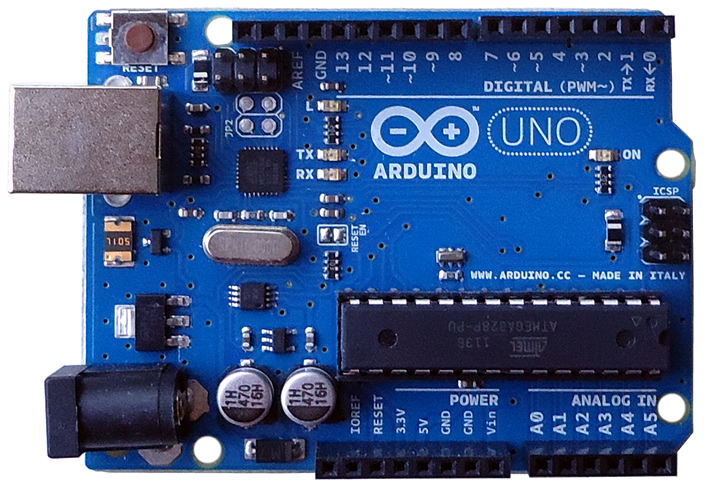DIY
Home Automation
According
to wikipedia, home automation is „the residential extension of building automation”.
In practice it basically means the use
of technology in automating some household activity. It can be as
basic as the automation of door opening and as complex as a
centralized system controlling security, collecting information about
pressure or temperature and watering the lawn.
The
idea of DIY home automation is to create your own systems, using
hardware and software programmed by yourself. In the past century DIY
home automation was considered by most of us as some abstract, often
sci-fi sounding concept. Nowadays, thanks to open hardware and open
source, it's very easy to create such systems.
Years
ago, one must have possessed good low abstraction level programming
skills to develop on microcontrollers. Current generation of
programmers is more familiar with high abstraction level programming
as it's considered more desirable on the job market. Therefore for
most of them, programming microcontrollers is often challenging.
Recently, microcontrollers (and microcomputers) have become easier to
develop on, because their creators provide high level programming
libraries. Basically it means, that you can easily write a code,
which, for example, collects information from sensors, in your
favourite programming language.
 |
| Arduino Uno microcontroller |
Hardware
components used in home automation projects are usually quite cheap.
Arduino microcontrollers family boards’ (which some of us had a
chance to play with thanks to our HEI) prices start from 8 dollars.
Popular Raspberry Pi boards cost about 47 dollars (for this price you
get a small microcomputer capable of running any ARM compatible
operating system).
Here
are some interesting example projects:
Raspberry Pi Garage door opener:
Arduino
knock detector
Arduino voice controlled TV remote
Personally,
I find DIY home automation very interesting, but I treat it more as
an educational-and-fun experience than an opportunity to make
something really useful for a daily usage. Serious projects are
usually very time consuming. I think that it’s also worth
mentioning that serious security issues may arise if you plan to
create your own security system.
Sources:
http://tech.cyborg5.com/2012/04/29/my-new-computer/arduino-uno-r3-atmega328/
http://en.wikipedia.org/wiki/Home_automation

Comments
I am very curious about the future and what it will bring to our houses. There are many ideas on how to improve living with technology, but it is yet very expensive.
Its often very helpful but we have to be honest, home automation in no a cheap investment. To build own fully automated home we need thousand of dollars. This is why this is not so popular.What more If we think about ready to use solution, they are much more expensive
All of this stuff is rather "magic" to me, I mean I'm not really into programming, but I understand the idea - it is really cool that nowadays you can simply do a quite advanced piece of electronic alone, without any very precise knowledge (ok I know that knowledge is a key but I mean you don't need to expertise yourself in "home stuff" haha )
I wonder how safe it is to connect to any of those -> for example with garage doors, how easy it is to get control?
But I also think about hacking house with such system, it's quite dangerous then.
Basically it works like that: more complicated stuff, more chances for it to fail.
How easy is to make such an automaton?
- depending on what you want to do - failry easy. If you want the light in your room to switch on/off when you clap your hands you can either make/buy a board, program and connect it, or buy yourself a working add-on that you only need to install. It's a rather fair ratio of time and money for doing such an innovation.
Will it be secure?
- again it depends on what type of system do you install, and how secure do you want it to be. In case of garage door opener you need to have a radio communication and you can make it fairly secure (movie uses wifi, so it's as secure as wifi is) and when someone wants to break in into your garage there are easier ways than trying to crack your wifi. On the other hand if you whole house is automatized to the point of controlling lights, freezer, kitchen, computers, air conditioning etc. via internet if someone wants and breaks into that system... imagine consequences.
Isn't such a system less reliable?
- depending on the quality of the system. Of course the less complicated something is, the harder it is to break, but we don't add useless stuff just to make things easier to break. Additional systems provide more control and safety, usually at the cost of maintenance.
To me, a diy home automaton needs:
-time
-skill
-some $$
If you have this three, you can start having fun with such things right away.
I will definitely look more into this topic, when all this systems become cheaper and more accessible.
http://en.wikipedia.org/wiki/Rolling_code
I never tried it, but I bet it's not very hard to implement.
https://www.dropbox.com/s/igks2xuaryi8ice/2014-12-18%2023.22.00.mov
PI + Relay board + web server to control switch
On the other hand automated houses may be dangerous, so we have to have even just a little manual control over our inventions.
Especially light control and windows control. It would be really nice to program
windows to open early when I still sleep. I heard Bill Gates has electronic house like this. It change even painting on the wall when Bill gets in the room.
Can you imagine trying to fix something someone hacked in your home? .... Horror :)
Also I think simplicity is best solution